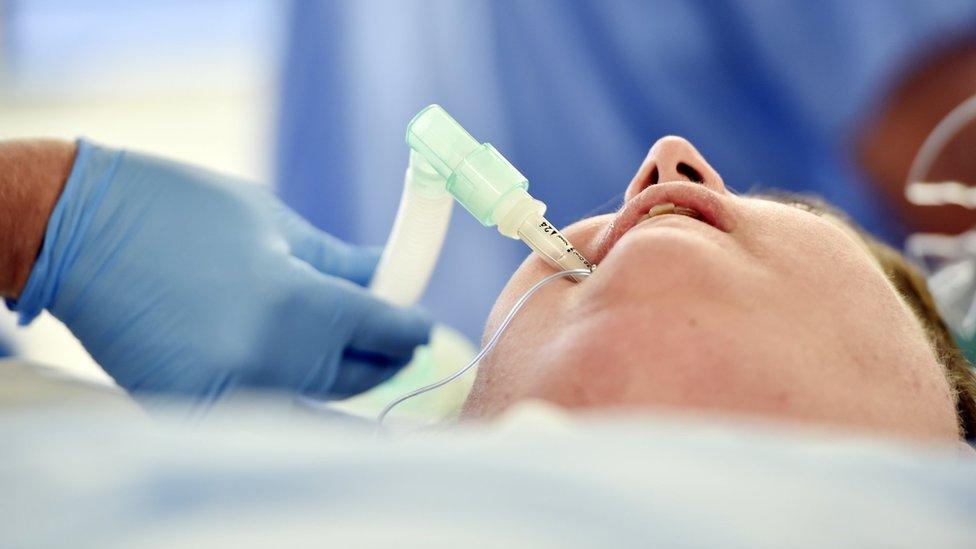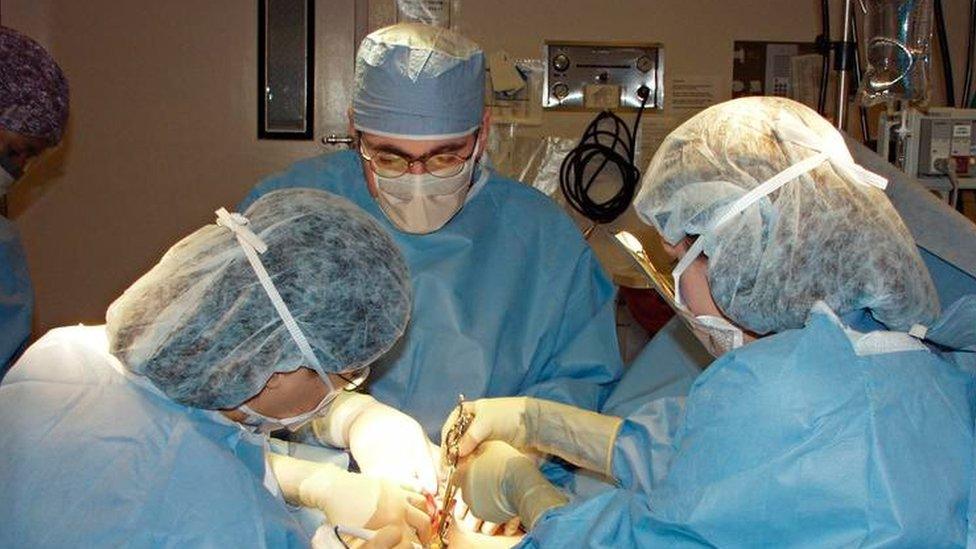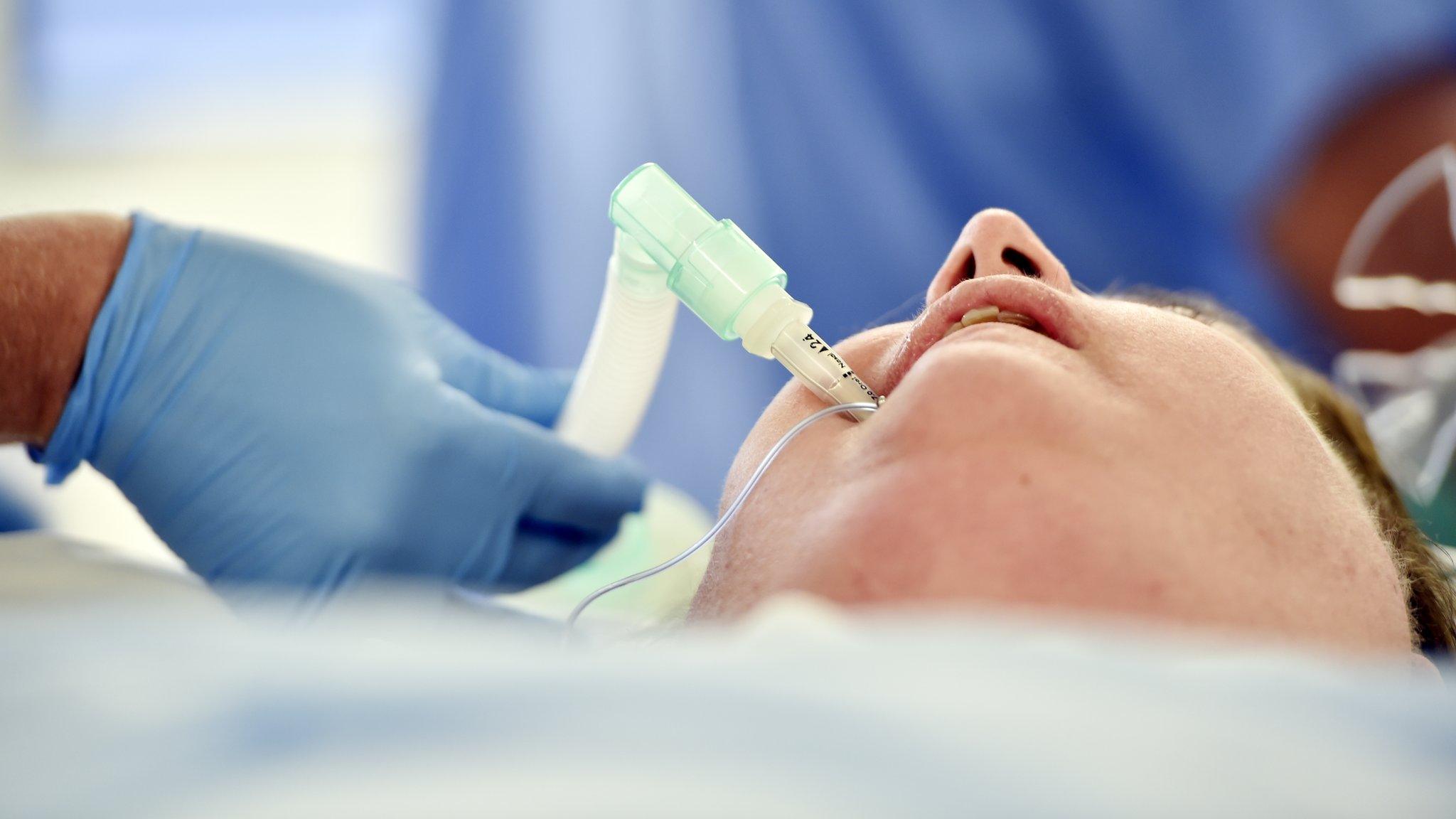Wait for cancelled ops hits 10-year high in England
- Published

More than 5,000 NHS patients in England were not treated within 28 days of their operation being cancelled in the year to April - the highest figure for 10 years.
During the same period, nearly 75,000 NHS operations in England were postponed at the last minute - also a 10-year high, NHS figures show.
The Royal College of Surgeons said the figures were "disappointing".
It blamed pressures on A&E, staff shortages and lack of beds.
Under the NHS constitution, cancelled operations are supposed to be rescheduled within 28 days or the patient's treatment should be funded at a time and hospital of their choice.
This affects patients who have had their operation cancelled at the last minute because of non-clinical reasons, such as beds or staff being unavailable.
This would not include patients told in advance that their operations would be cancelled during three days of junior doctors' strikes in January and March.
'Highly stressful'
The NHS England figures show that 6.8% of patients waited more than 28 days to be treated after their cancelled operations in 2015-16.
Clare Marx, president of the Royal College of Surgeons, said: "It is disappointing that the number of patients waiting for their cancelled operations to be rescheduled has hit the highest level in a decade.
"This is yet another indication of the pressure the NHS is under.
"Situations where patients have to wait longer for their treatment are highly stressful for them and their families and, in some cases, their condition could deteriorate."
She said it was vital that access to healthcare be provided at a time when patients could benefit most from the result.
Miss Marx said: "There are likely to be a number of factors behind this rise that government and the NHS need to continue to tackle including pressures in emergency departments, staffing shortages, and lack of bed availability due to rising delayed transfers of care.
"Industrial action may not have helped but the underlying causes are likely to be more strongly related to the broader pressures the NHS faces."
An NHS England spokesman said the proportion of all patients having their operations cancelled at the last minute remained under 1%, in spite of record numbers of operations being scheduled.
"Hospitals should continue to ensure that every effort is made to reschedule cancelled operations as soon as possible, but we can clearly see the effects of delayed care and industrial action hampering their ability to do so towards the end of the year," he said.
- Published11 February 2016

- Published15 May 2015
